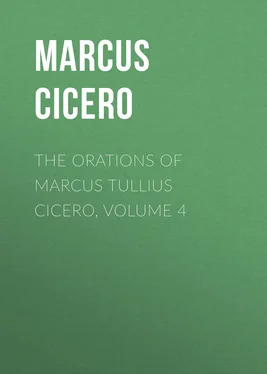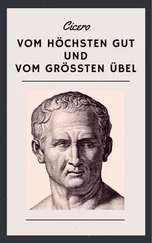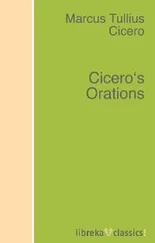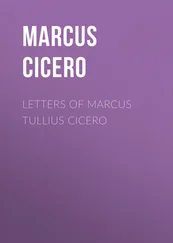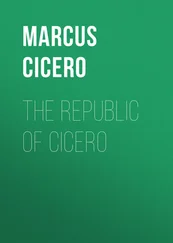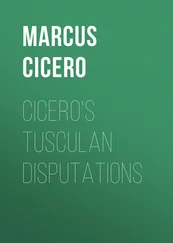Marcus Cicero - The Orations of Marcus Tullius Cicero, Volume 4
Здесь есть возможность читать онлайн «Marcus Cicero - The Orations of Marcus Tullius Cicero, Volume 4» — ознакомительный отрывок электронной книги совершенно бесплатно, а после прочтения отрывка купить полную версию. В некоторых случаях можно слушать аудио, скачать через торрент в формате fb2 и присутствует краткое содержание. Жанр: foreign_antique, Философия, foreign_edu, на английском языке. Описание произведения, (предисловие) а так же отзывы посетителей доступны на портале библиотеки ЛибКат.
- Название:The Orations of Marcus Tullius Cicero, Volume 4
- Автор:
- Жанр:
- Год:неизвестен
- ISBN:нет данных
- Рейтинг книги:3 / 5. Голосов: 1
-
Избранное:Добавить в избранное
- Отзывы:
-
Ваша оценка:
- 60
- 1
- 2
- 3
- 4
- 5
The Orations of Marcus Tullius Cicero, Volume 4: краткое содержание, описание и аннотация
Предлагаем к чтению аннотацию, описание, краткое содержание или предисловие (зависит от того, что написал сам автор книги «The Orations of Marcus Tullius Cicero, Volume 4»). Если вы не нашли необходимую информацию о книге — напишите в комментариях, мы постараемся отыскать её.
The Orations of Marcus Tullius Cicero, Volume 4 — читать онлайн ознакомительный отрывок
Ниже представлен текст книги, разбитый по страницам. Система сохранения места последней прочитанной страницы, позволяет с удобством читать онлайн бесплатно книгу «The Orations of Marcus Tullius Cicero, Volume 4», без необходимости каждый раз заново искать на чём Вы остановились. Поставьте закладку, и сможете в любой момент перейти на страницу, на которой закончили чтение.
Интервал:
Закладка:
From the very first moment after the departure, or rather after the hopeless flight of that bandit, that the senate could have met in freedom, I have always been demanding that we should be called together. The first day that we were called together, when the consuls elect were not present, I laid, in my opinion, amid the greatest unanimity on your part, the foundations of the republic, later, indeed, than they should have been laid, for I could not do so before, but still if no time had been lost after that day, we should have no war at all now. Every evil is easily crushed at its birth, when it has become of long standing, it usually gets stronger. But then everybody was waiting for the first of January, perhaps not very wisely.
XII However, let us say no more of what is past. Are we still to allow any further delay while the ambassadors are on their road to him? and while they are coming back again? and the time spent in waiting for them will make men doubt about the war. And while the fact of the war is in doubt, how can men possibly be zealous about the levies for the army?
Wherefore, O conscript fathers, I give my vote that there should be no mention made of ambassadors I think that the business that is to be done must be done without any delay, and instantly. I say that it is necessary that we should decree that there is sedition abroad, that we should suspend the regular courts of justice, order all men to wear the garb of war, and enlist men in all quarters, suspending all exemptions from military service in the city and in all Italy, except in Gaul. And if this be done, the general opinion and report of your severity will overwhelm the insanity of that wicked gladiator. He will feel that he has undertaken a war against the republic, he will experience the sinews and vigour of a unanimous senate For at present he is constantly saying that it is a mere struggle between parties. Between what parties? One party is defeated, the other is the heart of Caius Caesar's party. Unless, indeed, we believe that the party of Caesar is attacked by Pansa and Hirtius the consuls, and by Caius Caesar's son. But this war has been kindled, not by a struggle between parties, but by the nefarious hopes of the most abandoned citizens, by whom all our estates and properties have been marked down, and already distributed according as every one has thought them desirable.
I have read the letter of Antonius which he sent to one of the septemviri, a thoroughpaced scoundrel, a colleague of his own, "Look out, and see what you take a fancy to, what you do fancy you shall certainly have". See to what a man we are sending ambassadors, against what a man we are delaying to make war, a man who does not even let us draw lots for our fortunes, but hands us over to each man's caprice in such a way, that he has not left even himself anything untouched, or which has not been promised to somebody. With this man, O conscript fathers, we must wage war,—war, I say, and that instantly. We must reject the slow proceedings of ambassadors.
Therefore, that we may not have a number of decrees to pass every day, I give my vote that the whole republic should be committed to the consuls, and that they should have a charge given them to defend the republic, and to take care "that the republic suffer no injury." And I give my vote that those men who are in the army of Antonius be not visited with blame, if they leave him before the first of February.
If you adopt these proposals of mine, O conscript fathers, you will in a short time recover the liberty of the Roman people and our own authority. But if you act with more mildness, still you will pass those resolutions, but perhaps you will pass them too late. As to the general welfare of the republic, on which you, O consuls, have consulted us, I think that I have proposed what is sufficient.
XIII. The next question is about honours. And to this point I perceive that I must speak next. But I will preserve the same order in paying respect to brave men, that is usually preserved in asking their opinions.
Let us, therefore, according to the usages of our ancestors, begin with Brutus, the consul elect, and, to say nothing of his former conduct,—which has indeed been most admirable, but still such as has been praised by the individual judgments of men, rather than by public authority,—what words can we find adequate to his praise at this very time? For such great virtue requires no reward except this one of praise and glory; and even if it were not to receive that, still it would be content with itself, and would rejoice at being laid up in the recollection of grateful citizens, as if it were placed in the full light. The praise then of our deliberate opinion, and of our testimony in his favour, must be given to Brutus. Therefore, O conscript fathers, I give my vote that a resolution of the senate be passed in these words:
"As Decimus Brutus, imperator, consul elect is maintaining the province of Gaul in obedience to the senate and people of Rome, and as he has enlisted and collected in so short a time a very numerous army, being aided by the admirable zeal of the municipal towns and colonies of the province of Gaul, which has deserved and still does deserve admirably well of the republic, he has acted rightly and virtuously, and greatly for the advantage of the republic. And that most excellent service done by Decimus Brutus to the republic, is and always will be grateful to the senate and people of Rome. Therefore, the senate and the Roman people is of opinion that the exertions, and prudence, and virtue of Decimus Brutus, imperator and consul elect, and the incredible zeal and unanimity of the province of Gaul, have been a great assistance to the republic, at a most critical time."
What honour, O conscript fathers, can be too great to be due to such a mighty service as this of Brutus, and to such important aid as he has afforded the republic? For if Gaul had been open to Marcus Antonius—if after having overwhelmed the municipal towns and colonies unprepared to resist him, he had been able to penetrate into that further Gaul—what great danger would have hung over the republic! That most insane of men, that man so headlong and furious in all his courses, would have been likely, I suppose, to hesitate at waging war against us, not only with his own army, but with all the savage troops of barbarism, so that even the wall of the Alps would not have enabled us to check his frenzy. These thanks then will be deservedly paid to Decimus Brutus, who, before any authority of yours had been interposed, acting on his own judgment and responsibility, refused to receive him as consul, but repelled him from Gaul as an enemy, and preferred to be besieged himself rather than to allow this city to be so. Let him therefore have, by your decree, an everlasting testimony to this most important and glorious action, and let Gaul, 35 35 The English reader must recollect that what is called Gaul in these orations, is Cisalpine Gaul containing what we now call the North of Italy, coming down as far south as Modena and Ravenna.
which always is and has been a protection to this empire and to the general liberty, be deservedly and truly praised for not having surrendered herself and her power to Antonius, but for having opposed him with them.
XIV. And, furthermore, I give my vote that the most ample honours be decreed to Marcus Lepidus, as a reward for his eminent services to the republic. He has at all times wished the Roman people to be free, and he gave the greatest proof of his inclination and opinion on that day, when, while Antonius was placing the diadem on Caesar's head, he turned his face away, and by his groans and sorrow showed plainly what a hatred of slavery he had, how desirous he was for the Roman people to be free, and how he had endured those things which he had endured more because of the necessity of the times, than because they harmonised with his sentiments. And who of us can forget with what great moderation he behaved during that crisis of the city which ensued after the death of Caesar? These are great merits, but I hasten to speak of greater still. For, (O ye immortal gods!) what could happen more to be admired by foreign nations or more to be desired by the Roman people, than, at a time when there was a most important civil war, the result of which we were all dreading, that it should be extinguished by prudence rather than that arms and violence should be able to put everything to the hazard of a battle? And if Caesar had been guided by the same principles in that odious and miserable war, we should have—to say nothing of their father—the two sons of Cnaeus Pompeius, that most illustrious and virtuous man, safe among us, men whose piety and filial affection certainly ought not to have been their ruin. Would that Marcus Lepidus had been able to save them all! He showed that he would have done so, by his conduct in cases where he had the power, when he restored Sextus Pompeius to the state, a great ornament to the republic, and a most illustrious monument of his clemency. Sad was that picture, melancholy was the destiny then of the Roman people. For after Pompeius the father was dead, he who was the light of the Roman people, the son too, who was wholly like his father, was also slain. But all these calamities appear to me to have been effaced by the kindness of the immortal gods, Sextus Pompeius being preserved to the republic.
Читать дальшеИнтервал:
Закладка:
Похожие книги на «The Orations of Marcus Tullius Cicero, Volume 4»
Представляем Вашему вниманию похожие книги на «The Orations of Marcus Tullius Cicero, Volume 4» списком для выбора. Мы отобрали схожую по названию и смыслу литературу в надежде предоставить читателям больше вариантов отыскать новые, интересные, ещё непрочитанные произведения.
Обсуждение, отзывы о книге «The Orations of Marcus Tullius Cicero, Volume 4» и просто собственные мнения читателей. Оставьте ваши комментарии, напишите, что Вы думаете о произведении, его смысле или главных героях. Укажите что конкретно понравилось, а что нет, и почему Вы так считаете.
